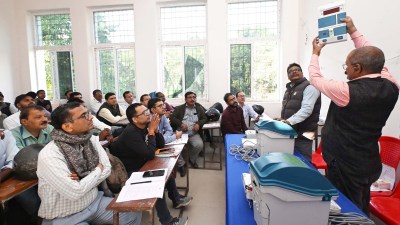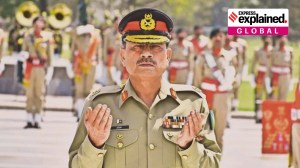Click here to follow Screen Digital on YouTube and stay updated with the latest from the world of cinema.
National Award gives me courage to do more work: Uri composer Shashwat Sachdev
National Award winner Shashwat Sachdev on his creative process, Uri and what we can hope to hear in the future.
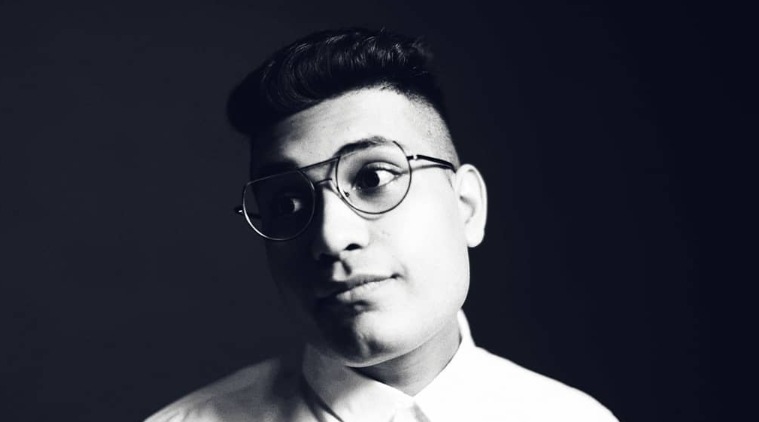 Shashwat Sachdev won the National Film Award for Best Background Score for his work in Bollywood movie Uri. (Photo: Shashwat Sachdev/Instagram)
Shashwat Sachdev won the National Film Award for Best Background Score for his work in Bollywood movie Uri. (Photo: Shashwat Sachdev/Instagram)
Shashwat Sachdev recently won the National Film Award for Best Background Score for his work in Uri: The Surgical Strike. Sachdev claims that “nothing has changed” since the award but admits that it did embolden him.
While Uri has all the trappings of a solid film score, what is hard to conceive is just how much is actually going on. The specific instruments used, like a modular synthesizer (a synthesizer from which you can add or subtract different parts), are themselves complicated, experimental and difficult to master. On top of this, composing, conducting and creating a cohesive sound is difficult. Sachdev managed to experiment with the synthesizer and use musical ideas like atonality (simply put, atonality is a musical concept where music is not written in any key and sounds strange or harsh to the ear) while still making a solid score.
Shashwat Sachdev spoke to indianexpress.com about his creative process, Uri and what we can hope to hear in the future.
Congratulations on winning the National Film Award. How does it feel?
It feels the same. Not much has changed. I hope not much changes except that it gives me courage and fearlessness to do more work.
The instrumentation in Uri’s background music goes all the way from orchestral elements like French horn to synthesizers. How do you strike a balance between the electronic elements of an arrangement and the more classical, acoustic elements?
When I read the script, there was a lot of aggression and power. There’s this young army officer who is full of anger which is a powerful and passionate emotion. I started working on the score which brought out that youthfulness, anger and willingness to fight.
I also thought it would be lopsided if I show only one aspect of my characters. I have to show that army officers are human beings. There is this human being who lost a friend. There is this human being who has lost a husband. There are human beings who are scared when they are going to fight. There are human beings who have families. These are very delicate and subtle emotions that don’t need to be that loud. I needed to balance it out with harmonies and add a touch that is very Indian, mellow and delicate. So, I started writing some melodic piano stuff.
Once I saw the film, I thought maybe it doesn’t have to be separate, and I started putting the two together. I showed it to Aditya (director Aditya Dhar) and he said, ‘Sha this is so beautiful. Maybe I can use this one here, this one there’. I made 50 tracks, maybe one and a half hours of music. I gave it to Shiv and Aditya. Shiv Kumar Panicker is the editor of the film. They took my music, chopped it and put different things in different places.
I really wanted the score to be performed. So, I went to Vienna and we recorded the whole orchestra there. More than 150 musicians worked on the whole thing.
That’s a lot to manage! Did you conduct as well?
I didn’t conduct the whole orchestra. I was under a lot of strict deadlines, but I did conduct a couple of pieces.
There’s this one specific part of the score that’s really interesting. There’s a track called “Guts” in which the synthesizer is detuned (the notes are not in sync with each other), and it makes it very discordant. What was the inspiration behind that?
My idea was that there is this choir of heavenly gods that are blessing the Indian army, saying ‘we give you power for tonight’. It was after this that I went to Berlin where I started recording the synthesizers and layering the score with what I had. It was a little atonal but I still really liked it because it brings a certain eeriness to the theme.
Considering you are one of the few people using a modular synthesizer in Bollywood, do you think the synthesizer will become a signature of yours?
A signature shouldn’t be a particular sound. A signature should be fearlessness or an emotion. Like, hey this guy is really fearless, he will do this and it will really work for the film. I hope that becomes my signature.
I don’t want it to be that I keep using a particular thing again and again. Then, rather than being a signature, it will become monotonous. Also, with modular synthesizers, they are so…
Versatile?
Yes, exactly. They are so versatile that you can’t create the same sound another day. For my next film, I am already prepared to buy another modular synthesizer and I hope it doesn’t sound like Uri. I hope this experiment turns out to be a different kind of sound rather than a signature Uri sound.
It all comes down to how satisfied my director is. If he wants me to do something he has heard before, then I would rather do the same thing. If he wants me to create something contemporary, modern or experimental, then I will do that.
I think it comes down to collaborating with the right people and finding the right chemistry.
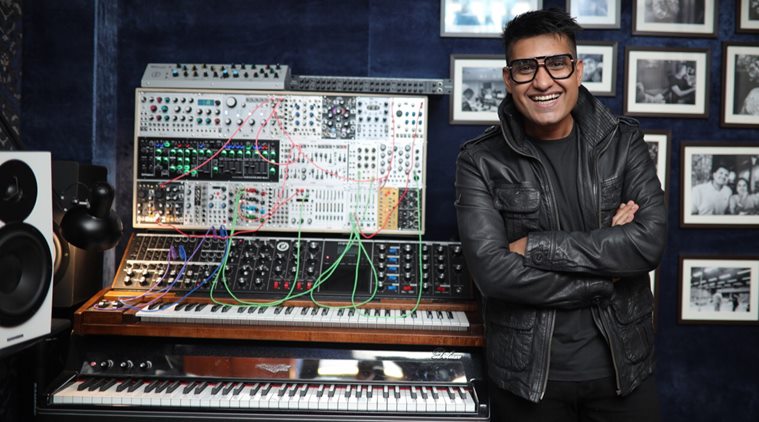 Sachdev is one of the few composers to use a modular synthesizer in his work.
Sachdev is one of the few composers to use a modular synthesizer in his work.
Do you have side projects of your own? Do you like performing?
What a great thing you have asked. I have been planning to release an electronic dance album for the past one year but I really don’t get the time. I really need to get back to it and find time to release stuff that I really like doing myself.
What kind of sound can we expect from this? Is there a particular genre you are working in?
Well, there are two sounds I am working with. One project is Indian classical music where I want to work with these classical greats who are performing my compositions. There are a few thumris, chhota khyals and Indian classical ballads that I have written. I want it to have a touch of a contemporary sound but the sound should be very Indian.
The other thing I am working on is the EDM stuff which people my age listen to.
But I don’t have a deadline. This is really bad because then you end up taking a lot of time.
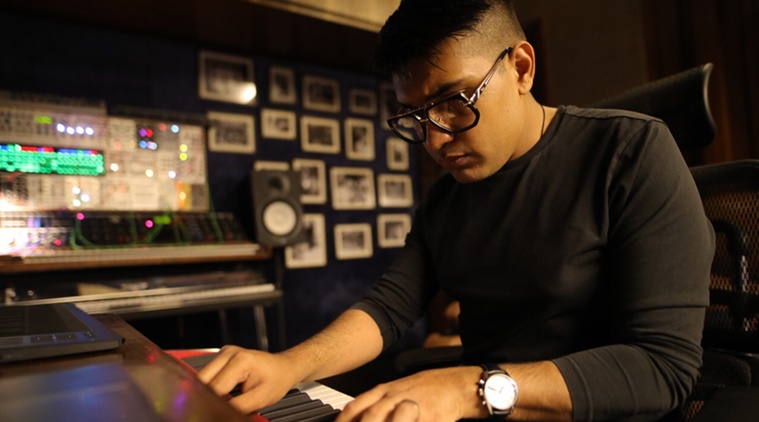 Sachdev’s ability to compose is versatile and ranges from Hindustani Classical to Electronic Dance Music
Sachdev’s ability to compose is versatile and ranges from Hindustani Classical to Electronic Dance Music
Is there anything we can expect in the near future?
I am working on three-four films which are all supposed to release next year. I am really thankful to God for giving me opportunities and choosing me as a medium. I really can’t take credit for the music I am making. It comes from above and I am but a mere vessel. I feel really humble, lucky and fortunate.


- 01
- 02
- 03
- 04
- 05



